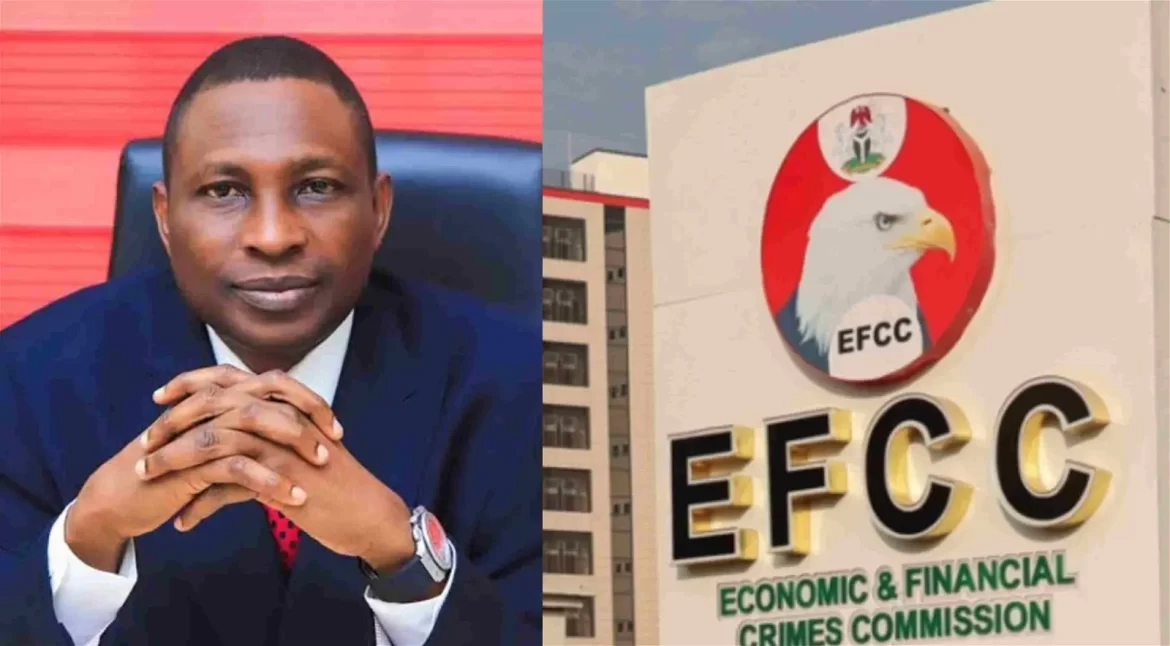555
By Tracy Moses
The Chairman of the Economic and Financial Crimes Commission (EFCC), Ola Olukoyede, has raised concerns over the persistent lack of transparency in Nigeria’s financial system, particularly within the oil and gas industry. He warned that continued secrecy in the sector poses a significant threat to national growth and weakens public trust in governance.
Olukoyede, who was represented by the EFCC’s Director of Public Affairs, Mr. Wilson Uwujaren, made the remarks on Tuesday at the National Conference on Public Accounts and Fiscal Governance, currently ongoing in Abuja.
He decried the prevalence of unverifiable revenue figures, weak monitoring structures, and speculative budgeting practices, noting that these issues continue to fuel corruption and inefficiency, especially in critical sectors like petroleum.
“The opacity surrounding oil and gas revenues remains one of the most dangerous flaws in our financial framework,” Olukoyede said. “When numbers are not based on facts, corruption thrives, and citizens lose confidence in their government.”
The EFCC chairman highlighted systemic weaknesses plaguing public finance management, such as consistent violations of financial regulations, unauthorized spending beyond approved limits, diversion of public funds, and the inclusion of bogus or non-essential projects in the national budget.
He also accused some government officials of tampering with digital financial platforms like the Government Integrated Financial Management Information System (GIFMIS) and the Integrated Payroll and Personnel Information System (IPPIS), using them to commit payroll-related fraud in ministries, departments, and agencies (MDAs).
“Despite numerous reform efforts, the gap between policy intent and actual implementation is still wide,” he noted. “We need more than superficial fixes. What is required is institutional accountability and real reform.”
While affirming that investigation and prosecution remain central to the Commission’s duties, Olukoyede revealed that the EFCC is now equally focused on prevention. He announced the creation of a Fraud Risk Assessment and Control Department aimed at detecting and closing fiscal loopholes in public institutions.
He also emphasized that the EFCC has strengthened partnerships with local and global anti-corruption agencies to curb illicit financial flows and improve asset recovery.
Speaking on recovered assets, the EFCC chairman said trillions of naira had been returned to the national purse, including proceeds from what he described as Nigeria’s largest real estate recovery — the confiscation of 750 duplexes in Abuja.
He explained that the recovered funds have been reinvested into essential national programmes such as the Nigerian Education Loan Fund (NELFund) and the Consumer Credit Scheme (CREDICORP). Additionally, the Commission is working with the Federal Ministry of Housing to convert seized properties into affordable homes for low-income Nigerians.
Despite these achievements, Olukoyede stressed that the path to financial openness remains long. He called for full digitalization of budget and project monitoring systems, unrestricted access to public spending data, and a more effective whistleblower mechanism.
“To stop fraud in procurement and payroll systems, we must fully automate the process and empower citizens to play active roles in governance. No reform will work if the people implementing it lack integrity. That is why we’re proposing mandatory integrity assessments for all public servants,” he added.
Olukoyede stressed that genuine change in financial governance would only be possible if all Nigerians, from high-ranking officials to ordinary citizens, insist on accountability and transparency.
He also took a swipe at the National Assembly, lamenting the absence of collaboration between the EFCC and the Public Accounts Committees of both chambers. According to him, the Commission has never received a single oversight report from the Committees for investigation, despite their mandate to audit government agencies.
“Lawmakers cannot demand transparency from others when they don’t lead by example. Accountability should be a shared responsibility across all arms of government. The legislature must uphold credibility in its budgeting process and avoid actions that weaken public trust,” he said.
Olukoyede called on the legislative Public Accounts Committees to work closely with the EFCC and make use of its enforcement capabilities to back their findings with consequences.
“From what I know, no investigative report by the Committee on any MDA has been sent to us. If we collaborate, the Public Accounts Committees will not just be ceremonial, they will have teeth,” he emphasized.
He concluded by urging a national shift in values:
“We must make transparency a habit and accountability a shared culture. Only then can we ensure that public resources deliver meaningful change in people’s lives.”



